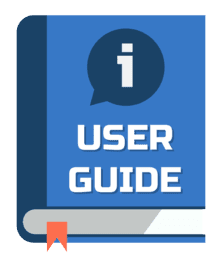Pemantauan Tingkat Kesejahteraan Rumah Tangga Miskin Perkotaan
Abstract
Full Text:
PDFReferences
Behrman, J. R., Gallardo-GarcÃa, J., Parker, S. W., Todd, P. E., & Vélez-Grajales, V. (2012). Are conditional cash transfers effective in urban areas? Evidence from Mexico. Education Economics, 20(3), 233–259. https://doi.org/10.1080/09645292.2012.672792
Cahyadi, N., Hanna, R., Olken, B. A., Prima, R. A., Satriawan, E., & Syamsulhakim, E. (2020). Cumulative Impacts of Conditional Cash Transfer Programs: Experimental Evidence from Indonesia. American Economic Journal: Economic Policy, 12(4), 88–110. https://doi.org/https://doi.org/10.1257/pol.20190245
Cahyat, A., Gönner, C., & Haug, M. (2007). Assessing Household Poverty and Wellbeing – A Manual with Examples from Kutai Barat, Indonesia. Center for International Forestry Research. https://doi.org/https://doi.org/10.17528/cifor/002265
Chiappori, P. A., & Meghir, C. M. (2014). Intra-Household Welfare. In NBER Working Papers 20189, National Bureau Of Economic Research, Inc. (Vol. 39, Issue 20189). Http://Www.Nber.Org/Papers/W20189.Pdf
Chiappori, P. (2016). Welfare and the Household. March 2018, 1–25. https://doi.org/10.1093/oxfordhb/9780199325818.013.26
Cramer, V., Torgersen, S., & Kringlen, E. (2004). Quality of life in a city: The effect of population density. Social Indicators Research, 69(1), 103–116. https://doi.org/10.1023/B:SOCI.0000032663.59079.0b
Diener, E. (1984). Subjektive Well-being. In Psychological Bulletin (Vol. 95, Issue 3, pp. 542–575). American Psychological Association, Inc.
Diener, E., Sandvik, E., Seidlitz, L., & Diener, M. (1993). The Relationship Between Income and Subjective Well-being Realtive or Absolute? Social Indicators Research, 28, 195–223.
Gonner, C., Haug, M., Cahyat, Wollenberg, de Jong, W., Limberg, G., Cronkleton, P., Moeliono, M., & Becker, M. (2007). Capturing nested spheres of poverty: a model for multidimensional poverty analysis and monitoring. Capturing Nested Spheres of Poverty: A Model for Multidimensional Poverty Analysis and Monitoring. https://doi.org/10.17528/cifor/002255
Kittiprapas, S. (2009). Subjective-well-being: New paradigm for measuring progress and public policies. 3rd OECD World Forum.
Klugman, J. (2002). A Sourcebook for Poverty Reduction Strategies. In J. Klugman (Ed.), A Sourcebook for Poverty Reduction Strategies (Vol. 2). The World Bank.
Lehman, A. F., Rachuba, L. T., & Postrado, L. T. (1995). Demographic influences on quality of life among persons with chronic mental illnesses. Evaluation and Program Planning, 18(2), 155–164. https://doi.org/10.1016/0149-7189(95)00006-W
Nazara, S., & Rahayu, S. K. (2013). Program Keluarga Harapan (PKH): Indonesian Conditional Cash Transfer Program. Policy Research Brief, 42(October), 5.
Rukumnuaykit, P. (2015). Urbanisation, Poverty and Subjective Well-Being: Empirical Evidence from Thailand. Urban Policy and Research, 33(1), 98–118. https://doi.org/10.1080/08111146.2014.980901
Syamsulhakim, E., & Khadijah, N. (2021). Graduating from a Conditional Cash Transfer Program in Indonesia. In Graduating from a Conditional Cash Transfer Program in Indonesia. https://doi.org/10.1596/36784
World Bank. (2000). World Attacking Development (Issue September).
World Bank. (2009). Conditional Cash Transfers: Reducing Present and Future Poverty, A World Bank Policy Research Report. In The World Bank.
Refbacks
- There are currently no refbacks.
@2017-2024
Jl. Hayam Wuruk No. 34-38 Bandung
Politeknik STIA LAN Bandung
Powered by OJS (Open Jounal Systems)


